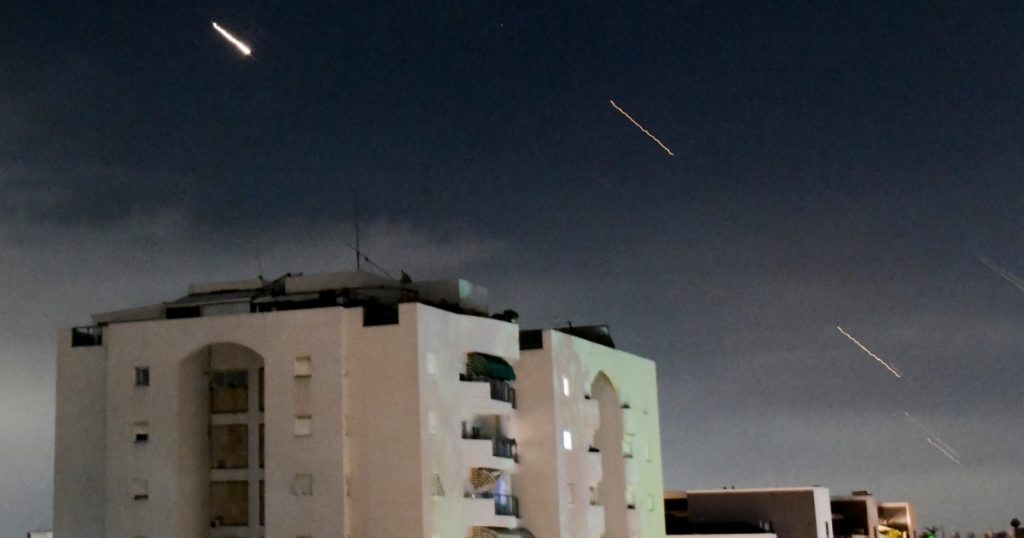U.S. officials anticipate that Israel’s response to Iran’s recent attack will likely be limited in scope and involve strikes against Iranian military forces and proxies outside of Iran. Discussions between U.S. and Israeli officials prior to the attack had outlined potential response options, though the final decision remains unclear. President Joe Biden and other leaders have called for restraint following the attack, which was in retaliation for a previous strike by Israel on an Iranian building in Syria. The options discussed ranged from no military action to strikes inside Iran, but given the minimal damage caused by the Iranian attack, it is likely that Israel will respond with less aggressive measures such as strikes in Syria. The U.S. does not plan to participate in the military response but expects Israel to share information that could impact Americans in the region.
An official from Israel’s war Cabinet indicated that a response to the Iranian attack may be imminent, following a meeting where various diplomatic and military options were considered. During the attack, the U.S. and other allies provided support to intercept the majority of drones and missiles fired at Israel. However, President Biden assured Israeli Prime Minister Benjamin Netanyahu that the U.S. would not engage in offensive operations against Iran. The international community has condemned the attacks while urging all parties to exercise restraint to prevent further escalation in the region. United Nations Secretary-General António Guterres stressed the importance of avoiding military confrontations in the Middle East during a Security Council meeting. Israel’s representative to the U.N. affirmed Israel’s right to retaliate and emphasized the need for action to address the situation.
With ongoing tensions between Israel and Iran, U.S. officials are closely monitoring the situation and expect Israel’s response to focus on targeting Iranian military forces and proxies outside of Iran. The decision about how and when to respond remains uncertain, with Israel weighing different options following the recent Iranian attack. While the U.S. is not directly involved in the military response, it is likely that Israel will provide information to Washington to ensure the safety of Americans in the region. President Biden has reiterated the importance of restraint in the aftermath of the attacks, calling for de-escalation to prevent further violence. The international community has echoed these sentiments, recognizing the need to avoid a major military conflict in the region.
The recent escalation of tensions between Israel and Iran has raised concerns about a potential military confrontation in the Middle East. As Israel considers its response to Iran’s recent attack, there is a focus on targeting military forces and proxies outside of Iran. The U.S. and other allies have offered support to Israel during the attacks, helping intercept incoming drones and missiles. Despite the growing tensions, President Biden has made it clear that the U.S. will not engage in offensive operations against Iran. Calls for restraint from world leaders and international organizations highlight the need to prevent further escalation and avoid a larger conflict in the region. Israel’s right to retaliate is acknowledged, but efforts to de-escalate and preserve regional stability are emphasized.
Overall, the situation between Israel and Iran remains tense, with both countries considering their options for responding to recent attacks. Israeli officials are weighing various military and diplomatic responses in the aftermath of the Iranian attack, with a focus on targeting Iranian military forces and proxies. The U.S. is closely monitoring the situation and expects Israel to share information about its response plans to ensure the safety of Americans in the region. Calls for restraint and de-escalation from world leaders and international organizations underscore the importance of preventing further violence and avoiding a major military confrontation in the Middle East. As the situation continues to evolve, efforts to promote stability and resolve tensions remain a top priority for all parties involved.















